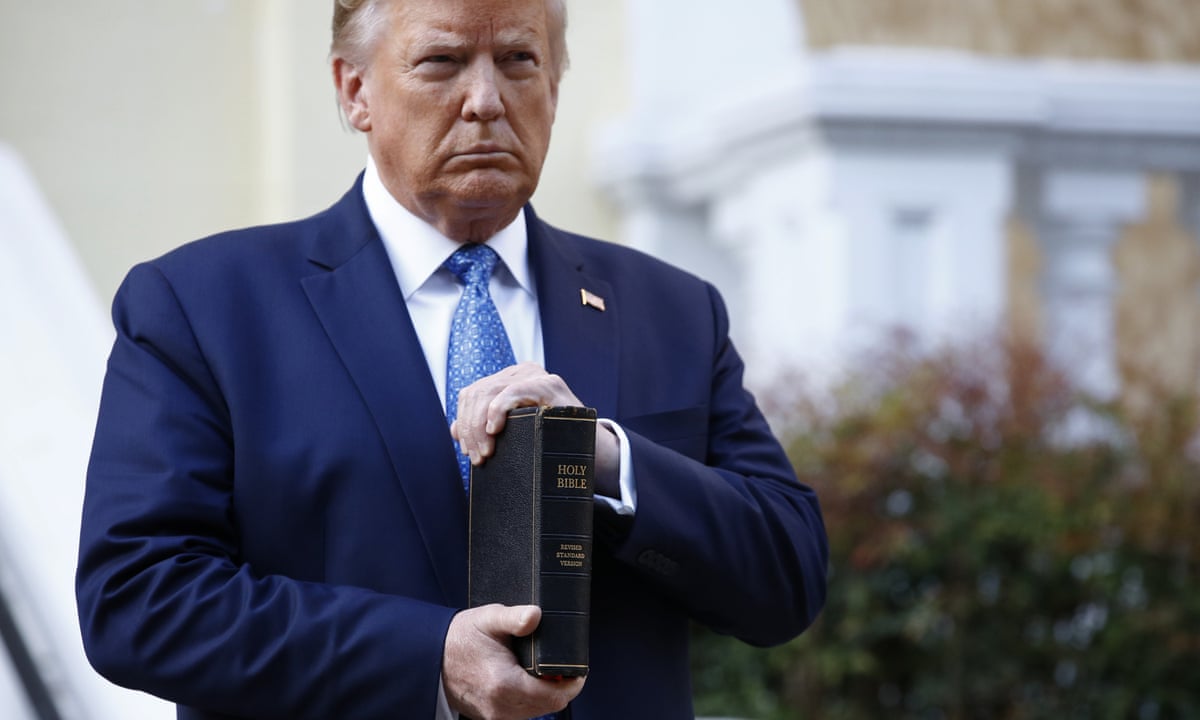Over the past several months I’ve been doing a slow, unhurried read through the book of Jeremiah. It strikes me as the right book for this moment, a kind of literature for exiles in a dark time of national trauma. Will Willimon refers to Jeremiah as a “book of endings, a book that deals with what the faith community thinks about when an old world is passing and a new world is not yet seen.” There is much anger and hurt, Willimon goes on to say, “for that is the way people often feel when a once-predictable, known world is being wrenched from their hands.”* Sound like 2020?
Jeremiah is a beautiful and complicated book, shuffling between hope and despair as poetry and prose collide. Parts of it soar and are unmatched in eloquence and pathos. Other parts can feel like you have to trudge through. The last several chapters feel like trudging to me. And the end of Jeremiah just sort of drizzles off to a rather anticlimactic conclusion.
But in the final chapter I noticed something I hadn’t noticed before. Everything is burning to the ground. The Temple. Homes and shops. The entire city of Jerusalem destroyed. People are being carted off into captivity. Then there’s verse 16, hidden in the smoldering heap of other verses: “But Nebuzaradan the captain left some of the poorest people of the land to be vine-dressers and tillers of the soil.”

Amid all the destruction, some are left behind in the ruins. The poorest people of the land. And they are given a vocation: To be vine-dressers and tillers of the soil. Vine-dressers, an image that Jesus would use to describe God (John 15). Tillers of the soil, like in Eden before the Fall. Do you see? In this time of national trauma, when an old world is passing away, God is doing something new in the ruins. Is this a hint of new creation? God plucking up and pulling down, but also building and planting something new and hopeful? And it is happening among those on the margins.
This verse stood out to me all the more given the final verses of chapter 52, and thus the conclusion of the book. It ends with King Jehoiachin of Judah, who was captured along with so many others (including the wealthy, the educated and the elite), being released from prison by King Evil-merodach of Babylon. Jehoiachin’s prison clothes are removed and “every day of his life he dined regularly at the king’s table.” In addition, he was given an allowance by the Babylonian king, protected and pampered in the palace up to the day of his death.
Now most commentators agree that this ending is the work of editors to provide an appendix, intended to give hope to the exiles in a dark time. God’s judgment on his covenant people would not be the last word. They had a hopeful future in Johoiachin, who represented the royal Davidic line. I get that.
But the contrast is remarkable to me, and largely because of the cultural and political moment in which the North American church finds itself. I believe we are experiencing deep national trauma on so many levels right now, and we will not fully understand the impact for years to come. Moreover, we’re in the midst of a seismic shift regarding the church’s location in society—a shift that has been happening for decades but is now accelerating dramatically. This is true even in places where a Constantinian footprint remains, like northwest Iowa where I live.

What we’ve seen among the white evangelical church in particular is a scrambling to hold on to power and privilege. We want to be in the palace, dining daily at the king’s table, getting special favor. We want security and protection. As Kristin Kobes Du Mez describes in her outstanding book Jesus and John Wayne: How White Evangelicals Corrupted a Faith and Fractured a Nation, this promise of power and protection has long been an allure for white evangelicals to “strongmen” like Donald Trump. It’s palace Christianity.
But this is not where God’s hopeful future resides. As the old world passes away, a new world is being born in the ruins, among those on the margins who have taken up this faithful, creational vocation as vine-dressers and tillers of the soil—stewards of shalom. Steve Toshio Yamaguchi affirms this in his profound essay “From the Palace to the Streets,” where he claims that the future of the church lies with those who’ve long been excluded from the palace, denied power and privilege—especially our immigrant churches which have had to learn how to survive and thrive in the streets, without favor from the state. The future of the church will not be a palace Christianity, says Yamaguchi, but a “street Christianity.”

Here’s my confession: While I believe all of this to be true, I also resist it. As a white male who has benefited from palace Christianity, letting go of the old world is hard. But it’s time. It’s time. I have so much to learn, and so much to unlearn. And there is so much I don’t know. But this one thing I do know: The Spirit of God is summoning me to have the courage and humility to leave my own palace and become a student of my teachers in the streets—my brothers and sisters who have already taken up this biblical vocation to be stewards of a future not our own.
“The future is already here,” insists pastor Dave Gibbons. “It is just on the margins.” And it is on the margins, where the future meets us in the present, that we also come to discover another Table with another King who has the audacity to whisper, “Behold, I am making all things new.”
* From the introduction to Jeremiah, The Renovare Spiritual Formation Bible (HarperSanFrancisco, 2005), p.1079.
